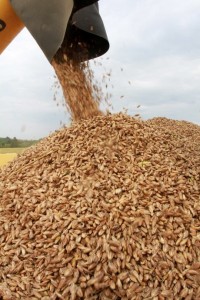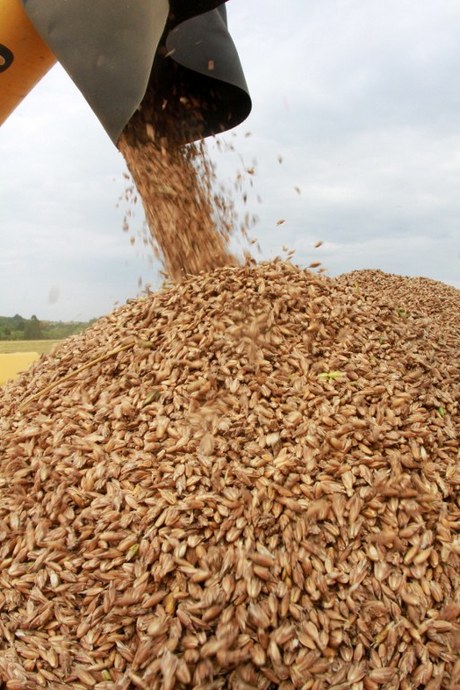
(AFP Photo)
By: Nada Badawi
Egypt will tap US credit guarantees to buy wheat for the first time this year, due to concerns by bankers that the country will not be able to meet its demand for the vital cereal.
Egypt is the world’s largest wheat importer.
Rising concerns have spread among bankers given the country’s current depleting wheat inventories and traditional methods of public tenders and letters of credit.
The US Department of Agriculture’s (USDA) export credit guarantee programme, known as the GSM-102, facilitates US farm exports, and assures lenders they will get paid even if a borrower fails to repay the money.
The credits will cover up to 98% of the principal and a portion of the interest.
The news comes 10 days after an announcement made by Egyptian Supply Ministry’s General Authority for Supply Commodities (GASC), that current wheat inventories are sufficient for 10 months.
A major wheat shipment of 400,000 tonnes from the US, France and Romania arrived late January.
“The wheat shipments should last until 30 June,” said Abdel Ghaffar El-Salamony president of foods division.
“The local production of wheat is expected to increase in May by around 300,000 tonnes, so this shall cover the end of the year,” he continued.
USDA reported that $17.7m worth of wheat was sold to Egypt in the past weeks through this programme.
“The rising concern among lenders is that Egypt might not be able to fulfil the need for wheat through what it currently has,” said Ashraf Ezzeldin, Minister Plenipotentiary Head of the Economic and Commercial Office at the Egyptian Embassy in Washington.
The wheat purchased under the credit programme represents a fraction of the 1.1 million tonnes sold to Egypt during the marketing year that ends on 31 May.
During the previous fiscal year, Egypt bought $98.3m worth of soybeans and $13.1m worth of wheat through the USDA credits system.
Egypt’s struggle for wheat continues in the face of the lack of foreign currency in the country after the Egyptian pound slumped against the US dollar.
The government’s foreign reserves have dropped significantly from $36bn dollars since the start of the revolution to $13.5bn in February 2013.
Due to this lack of foreign currency, the government has had to cut down on wheat imports during the first half of the fiscal year 2013/2013.
“The solution is to maintain purchasing enough stocks,” said El-Salamony.
He stressed, however, that efforts have been made by the government to provide enough wheat necessary for the production of bread.
Egypt’s former adviser to the Ministry of Supply, Nomani Nomani, told Reuters that Egypt’s banks are trying to save dollars in order to continue importing wheat.




